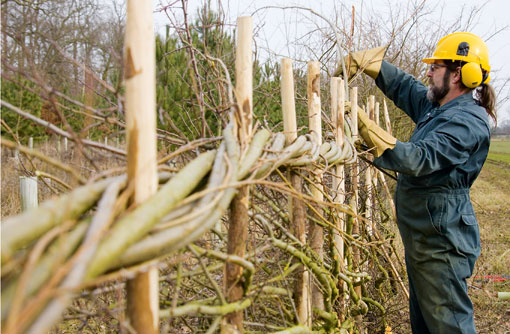ELS overhaul: new rules, new points
An overhaul of Natural England’s Entry Level Stewardship (ELS) scheme means that from 1 January 2013, options selected for new agreements may not be eligible for the same number of points as in the past.

Under DEFRA plans to ensure stewardship schemes deliver greater environmental benefit and value for the taxpayer, the changes will make fewer points available for some of the more popular ELS options such as buffer strips and hedgerow management.
Subject to agreement by the European Commission, five new options will also be introduced so that farmers are able to make up any shortfalls and meet the required 30 points in order to be eligible for stewardship payments (see “New options”, right).
| NEW OPTIONS |
|---|
Options available for new or renewed ELS agreements starting after 1 January 2013, or existing agreements started after 1 February 2007 (subject to EC approval):
See the full list of points changes. See a draft copy of the 4th edition handbook. |
While the changes are expected to affect about 7,000 farmers whose agreements are due for renewal in 2013, the NFU said there was still time for those due for renewal before 1 January to sneak in under the existing rules – provided they took immediate action.
“It usually takes Natural England three months to process an application, so if you want an agreement to start before the new system comes in you really need to get your application in by 1 October,” Clare Robinson, NFU countryside adviser, said.
“That means starting to work on your application now if you want to secure a renewal date before 2013, especially if you have a joint agreement where there’s a risk of disagreement over an issue.”
Ms Robinson said those who were unable to renew agreements before the January cut-off also needed to start thinking now about how they were going to meet the 30-point target in order to qualify.
“A number of farmers will find it more difficult to get the points together and will have to look at a different suite of options,” she said.
“Even if you’re not due for renewal in 2013, it’s important you look carefully at the points that are on offer as you don’t want to assume a hedge that was eligible in 2012 will be eligible in 2013.”
Despite concerns that the changes would make it tougher to join stewardship schemes, Ms Robinson said the revamped system would appeal to many farmers. Some may even want to alter existing agreements to take advantage of the changes.
“It actually won’t suit all farmers to stay in the 2012 system,” she added. “Some of the new options offer more breadth and address issues such as the hungry gap for farmland birds.
“It’s important to recognise these changes actually do bring a lot of positives. Four of them contribute to the Campaign for the Farmed Environment by helping with land management in the arable sector.
| ELS OBJECTIVES |
|---|
|
“However, if you do want a 2013 agreement, it’s important you don’t sign anything until the updated ELS handbooks have been published and the changes have been agreed by the commission.”
Annabelle Le Page, Natural England ELS lead, said the agency was confident the changes would be agreed by the commission in time for the 4th-edition handbook being published in October.
“The new and amended options and the draft handbook are on the Natural England website at the moment so people can look at the new system and think about how they will meet the points requirements,” she said.
“The changes apply to ELS, but a lot of the options in Organic ELS and Higher Level Stewardship agreements are actually selected from the ELS handbook, so it’s important everyone checks the points rates to see what options are open to them.
“In most cases securing the right number of points isn’t going to be impossible for farmers; it’s about a more considered approach and getting more value for money out of these schemes.”
ELS BACKGROUND
Introduced in 2005, ELS was the first guaranteed-entry England-wide agri-environment scheme.
For some, either the complexity of the scheme proved too daunting, or the management changes required did not tally with the income received. Many of those at the forefront of the push towards environmental measures were tied into “classic schemes” such as ESAs and were prevented from entering ELS due to double-funding rules.
However, for many farmers willing and able to take up the new ELS agreements the scheme fitted well with existing farming practices. For some, the only significant change to their farming practices was in hedgecutting. The £30/ha payment added a welcome top-up to farm incomes, without undue challenge.
Experts from Natural England are hand on our ELS website forum to answer your questions about the new rules. Simply post your questions anytime between 10 and 24 August, and NE will endeavour to answer within 48 hours.
Read more on the ELS changes.
